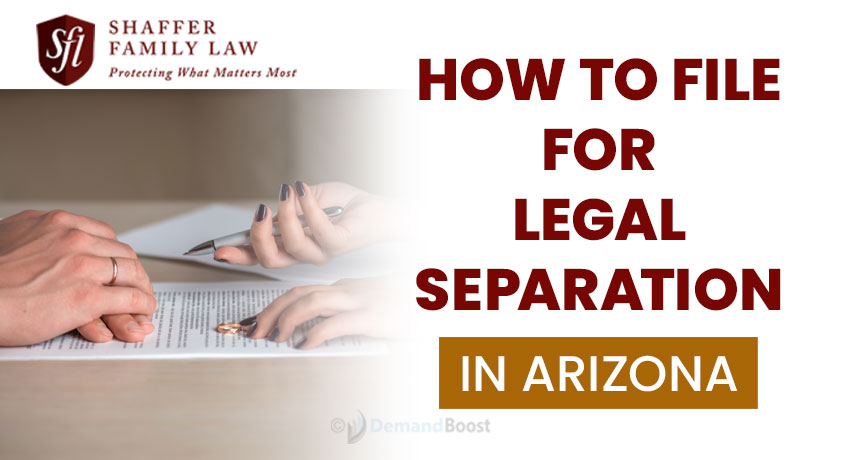Sometimes, marriages don’t unfold the way we imagined. What once felt full of hope and connection may now feel strained or uncertain. While divorce is often seen as the default path, it’s not the only option. In Arizona, legal separation offers an alternative that allows couples to live apart while remaining legally married. Like divorce, it provides a structured way to address important matters such as child custody, spousal support, and property division —without fully ending the marriage. Since the marriage is not legally dissolved, neither spouse can remarry.
Some couples choose legal separation over divorce for various reasons—often due to religious beliefs, financial considerations, or the hope of reconciliation. It allows them to stay legally married while retaining benefits like health insurance, social security, or military eligibility. Legal separation can also be a practical option for those unsure about divorce, offering time and space to work through issues, especially when children are involved and emotional stability is a priority.
While a legal separation may seem less serious than divorce, both carry significant legal weight. As court-ordered processes, they impose enforceable obligations and responsibilities on both spouses and should not be taken lightly. Having a dedicated divorce lawyer from Shaffer Family Law by your side can make all the difference when navigating legal separation—or simply exploring your options. While the steps outlined here offer a general overview of how to file for legal separation, working with Shaffer Family Law ensures your rights are fully protected throughout the entire process.
- Mutual Agreement for Legal Separation: Unlike divorce, which can be initiated by one spouse, a legal separation requires the agreement of both spouses to proceed.
- Determine Eligibility: To file for legal separation in Arizona, one spouse must live in the state or be stationed here as a servicemember. The couple must be legally married, and either intend to live apart or have an irretrievably broken marriage. If children are involved, they must have lived in Arizona for six months for the court to address custody issues.
- Filing Process: In Arizona, the legal separation process closely follows the steps for divorce. Start by filing a Petition for Legal Separation—choosing the version “with minor children” or “without minor children,” as applicable. If children are involved, additional forms—such as a Parenting Plan and Child Support Worksheet—will be required. All documents must be filed with the Superior Court in the county where either spouse resides.
- Serve Your Spouse: After filing, the petitioner must legally serve the documents to the other spouse. Once served, the respondent has the opportunity to file a response with the court.
- Finalize the Separation: If both parties agree to the legal separation, they will negotiate a settlement covering key issues such as property division, child custody, spousal maintenance, visitation and parenting time, and child support.
Navigate Legal Separation with Expert Guidance from Shaffer Family Law in Arizona
In Arizona, couples have the legal option to pursue a separation without immediately dissolving their marriage. However, if one spouse objects—and either party meets the residency requirement for divorce—the court may convert the separation into a divorce proceeding. Even when both spouses initially agree to separate, the legal separation can be changed into a divorce at a later time if circumstances change.
Deciding between legal separation and divorce can be overwhelming—but you don’t have to navigate it alone. At Shaffer Family Law, we provide the trusted legal support you need to move forward with confidence. Our experienced team will manage all the paperwork, communicate with the other party on your behalf, and represent you in court if necessary.
Your future matters. Let us help you make informed decisions that protect your rights and peace of mind. Call us today at (480) 470-3030 today to request your consultation online.
Sources:
https://superiorcourt.maricopa.gov/media/e5pon2bh/drlsa1z.pdf

